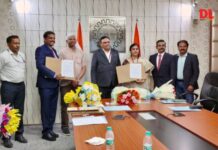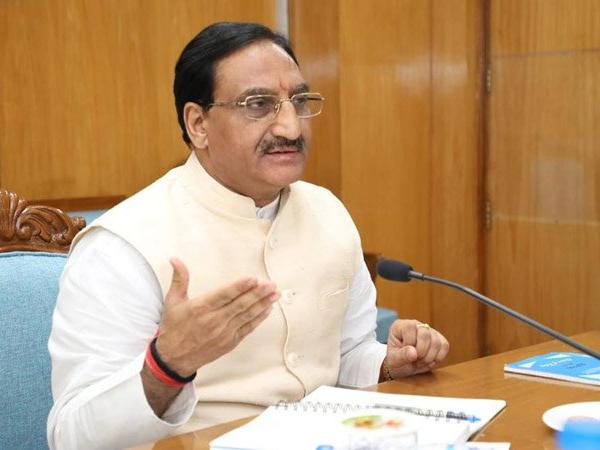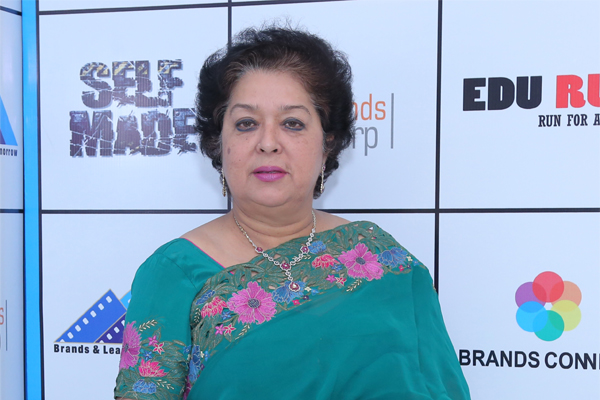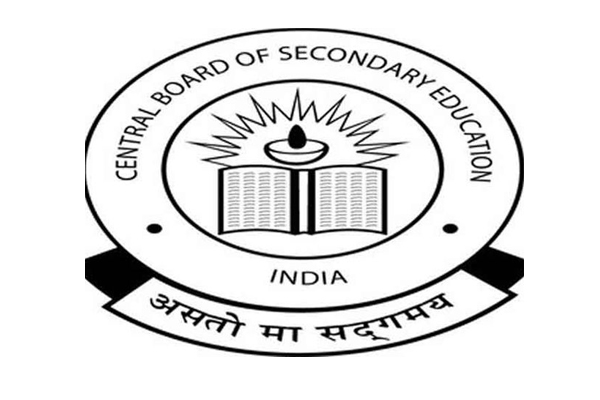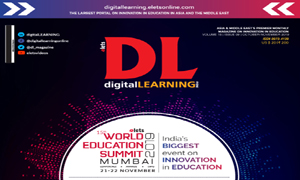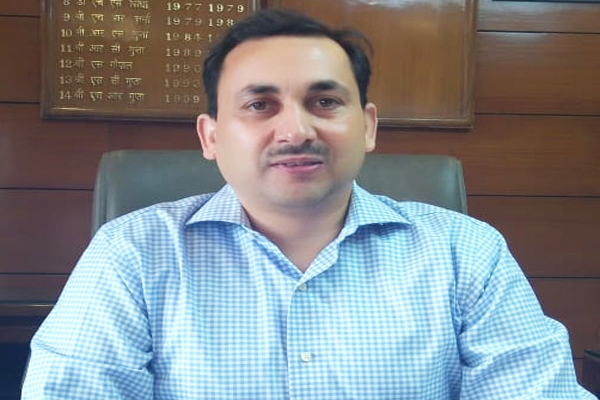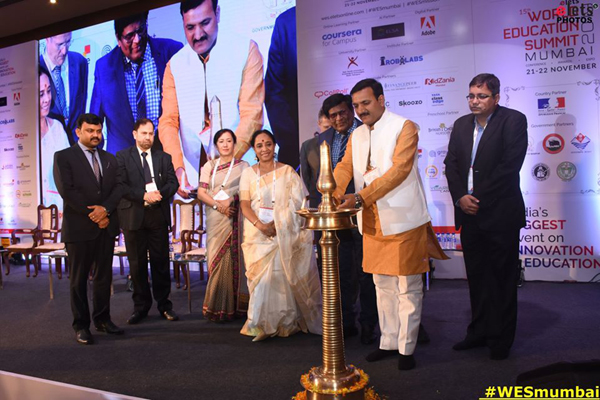Career counselling must start in the school itself, especially for Class 9-11 students because these are the academic levels where students select a specific stream as per their specialisation and interests, writes Rumani Arora of Elets News Network (ENN).
The latest incident of a 19-year-old IIT Madras student allegedly committing suicide after being depressed over scoring low marks in the internal examination is an eye-opener to the amount of academic stress that students undergo. Notably, this is the fourth case of suicide inside the IIT Madras campus this year, and fifth since December 2018.
According to the National Crime Records Bureau (NCRB), one student commits suicide in India every hour. Unfortunately, India has been witnessing one of the highest suicide rates among people aged between 15 to 29 years. The most vulnerable group being the one studying in Class 10 and Class 12, and the major reason is the board examination related pressure.
Sadly, depression among school and college students – is becoming a grave issue, especially in metro cities. It is high time for educational institutions to address the issue of academic stress seriously and provide remedial measures including counselling for students who are facing problems like stress and depression.
Recently, Brihanmumbai Municipal Corporation (BMC) launched the ‘Smiling Schools Project’ after a student from Municipal Corporation committed suicide. The project is aimed at training the teachers and principals to identify the students facing mental or emotional stress.
Anurag Tripathi, Secretary, CBSE (Central Board of Secondary Education) also raised concern on the mounting academic pressure on the students. In a recent interview with Elets News Network (ENN), he urged the teachers, principals and parents to create a stress-free environment for students at schools and at home, where they feel free and confident to think and innovate.
Why Career Counseling?
‘One size fits all’ approach to education, i.e., assuming all students learn in the same manner, will not work in the present scenario. We simply cannot expect every child to aspire to be an engineer or doctor as every individual is unique in his/her own way and possess different capabilities.
Career Counselling can help an individual understand one’s own self, as well as work trends, so that one can take an informed decision about career and education. And not only this, career counseling can help manage a diverse range of problems such as low concentration levels to poor time management, trust issues with family to disagreement between parents and children about making career choices.
Communicating the same thought, Sarika Babar, Principal & Director of Academics, Clara Global School, Pune, said, “We at Clara often invite those people as chief guests who have taken a different career path in life, so that our parents and students are aware of the various career avenues, other than the traditional doctors and engineers”.
The primary aim of career counselling is to help students choose a field that is in sync with their skills and their job expectations. Thus, with proper guidance and career counselling, most candidates end up choosing the right career, and perform their level best, which ultimately helps them build their career and succeed.
Need of Career Counselling in Schools
Career counselling must start in the school itself, especially for Class 9-11 students because these are the academic levels where students select a specific stream as per their specialisation and interests.
It is to be noted that many students are not satisfied with the stream they choose and tend to change it; this happens in lack of proper guidance about options available according to their interest and different education stream.
Many counselors, nowadays, prefer to conduct psychometric tests to analyse interests of students because usually, students are perplexed between their diverse interests but these psychometric tests help figure out students’ capabilities towards each of their interests. “Catch them right and catch them young philosophy makes our students stress free. It is essential for a school to conduct career counselling session periodically and also conduct Brain profiling of students to understand the preferences at an early stage,” said Lakshmi Rao Kadiyala, Academic Director, Jain Group of Schools, Hyderabad.
In the present time, where career options are continuously evolving, it has become significant to make students aware and help them see beyond the horizon. Highlighting the same, Dr. Ruchi Singh, Headmistress, Seth M A High School, Mumbai, said, “Jobs have emerged that didn’t exist five or ten years ago. The world of work well equipped with the latest technologies is fast and challenging. We in our school provide a platform that focuses on students as well as parents about the careers”.
Emphasising on developing skills among students, Kavisha Khurana, Founder Director, The Chintels School, Kanpur, said, “We are making our students ready for skilled based India by telling them about career options in modern India which are different from conventional careers”.
Besides, there is also a significant need to provide students with hands-on experience pertaining to different career fields. “We organise an event called MarketKshetra that is planned, organised, strategised and executed entirely by our students from grades as early as 6th and 7th, giving them hands-on exposure to handle finances, get into the role of planners and executors, thereby taking career counselling to a different level altogether,” said, Seema Negi, Principal, Sanjeevani World School, Mumbai.
Sharing the practices followed at her school, Dr. Sangeeta Srivastava, Principal, Sardar Vallabhbhai Patel Vividhlaxi Vidyalaya, said, “We organise visit to parliaments, field trips to industries, Medical college, NDA, factories, workshops etc on regular basis to gain knowledge about these vocations to make informed choices about career”.
Developing Career Counselling Mechanism
Understanding the present scenario, it goes without saying that there is an urgent need to build a career counselling mechanism pan- India. But whose responsibility is this – schools or parents? Does the government have a role to play? Here’s what our edu-leaders think:
Kavita Singh, Principal, Ram Ratna Vidya Mandir, Thane, Maharashtra, believes that counseling must begin from home. “Parents act as a very important factor which the child considers before making a career choice. In an academic session, counseling sessions are arranged for the parents in the RRVM campus which are taken by in-house and expert Psychologists”.
“For any individual, the impact of people and interconnectedness with the environment helps in deciding the career path beginning from home and reaching educational institutions. The exposure to the world of work does not confine to one particular organisation or government,” said, Shobha Rao, ICT Head, Ajmera Global School, Mumbai.
Dr Kavita Bajpai, Director, The International School of Thrissur, believes that onus lies on schools but government also has a crucial role to play. She said, “Primarily the school should take this initiative as students spend most of their active hours in school. Government has a major role to play by providing the opportunity rising above the caste creed and stratum of society”.
Asserting that it’s the responsibility of both schools and universities to develop a career counselling mechanism, Dr. Priti Shrimal, Principal, Billabong High International, Baroda, said, “Career counselling starts from primary school when the children are shown a slice of the myriad professions. This continues to be shaped and nurtured by schools and then transit to university”. She asserted that the role of government lies in capacity building of youth and implement policies and guidelines to ensure that educational institutions provide holistic guidance and have counselling cells with qualified personnel in place.
Conclusion
With the emergence of technology and innovations, there are lots of rising opportunities with various fields where one can make a better career. Career counselling is instrumental in providing the guidance to students to have a clear vision on what to pursue, the course duration and fees. In modern world, there are numerous career choices available ranging from – medicine to mass communications, marine biology to information technology, engineering to event management and culinary arts to music. Choosing a field of study that is not in tune with the interests or skills of the person concerned could prove disastrous. And that’s where the career counselling comes in.

